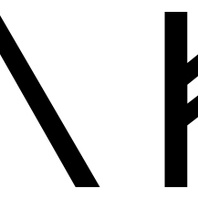
Viking Names
Tofi
The name Tófi is very common in the Viking Age, though mostly in Sweden and Denmark. It forms the first element of the hybrid place-name Toton, Nottinghamshire.
Read More

Viking Names
Conisholme
Conisholme, in the South Riding of Lindsey in Lincolnshire, comes from Old Danish kunung ‘a king’ and Old Norse holmr ‘an island, an inland promontory, raised ground in marsh, a river-meadow’. The name is topographically appropriate, though what king is evoked by it is uncertain. However, the village of Coningsby, also in the South Riding of Lindsey, is recorded in Domesday Book as having been owned by the king.
Read More
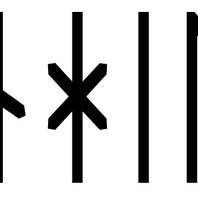
Viking Names
Gunnhild
Gunnhildr is a very common female name throughout the Viking world. In England, the name has a particularly wide geographical distribution that extends beyond the Danelaw and beyond the Viking Age. Its popularity was most likely influenced by its use in the Danish royal family in the eleventh century, when it was borne by an aunt, a daughter and a niece of King Cnut. The name is also the first element of the place-name Gunthorpe, Nottinghamshire.
Read More
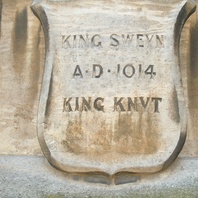
Viking Names
Svein
The Old Norse male name Sveinn was one of the commonest in Scandinavia, particularly in Denmark and Sweden, where it is recorded in many runic inscriptions. It occurs as the first element in the Lincolnshire place-name of Swinethorpe. Early forms of this name confirm that it is nothing to do with swine, but rather contains this name. The name continued in use in both Lincolnshire and Yorkshire well into the thirteenth century. It was famously the name of the father of King Knútr, later king of all England. Sveinn was known as ‘Forkbeard’ and died in Gainsborough, Lincolnshire, in 1014 according to the Anglo-Saxon Chronicle.
Read More
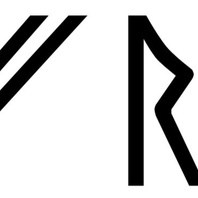
Viking Names
Ingifrid
Ingifríðr appears fairly frequently in Denmark and Sweden. The name is attested twice in England during the Middle Ages in the forms Ingefrit and Ingefrid in documents from Lincolnshire and Yorkshire respectively. It is an Old Norse compound name with its first element Ingi-, which is of doubtful origin but might relate to a Greek word meaning ‘lance’ or ‘staff’ combined with and the second element -fríðr, related to Gothic frījōn ‘to love’, with original meaning ‘loved’, later ‘fair’. In origin it is thus the same name as Ingiríðr.
Read More
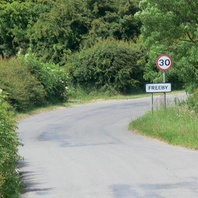
Viking Names
Freeby
Freeby, in the Framland Hundred of Leicestershire, comes from the Old Danish male personal name Fræði (genitive singular Frætha) combined with the Old Norse element by ‘a farmstead, a village’.
Read More
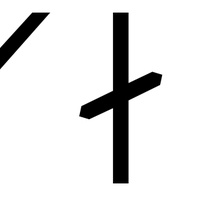
Viking Names
Skeggi
The male name Skeggi is sporadically recorded across Scandinavia and Iceland in the Viking Age and later. It forms the first element of Skegness, Lincolnshire, with Old Norse nes ‘headland’. The name possibly derives from the Old Norse word Skegg, meaning ‘beard’.
Read More
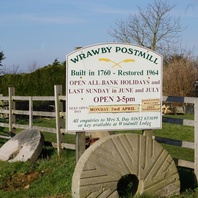
Viking Names
Wrawby
Wrawby, in the Yarborough Wapentake in Lincolnshire, comes from the Old Danish male personal name Wraggi and Old Norse by ‘farm, settlement’.
Read More
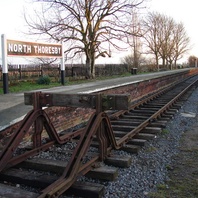
Viking Names
North Thoresby
North Thoresby, in the Haverstone Wapentake of Lincolnshire, comes from the Old Danish male personal name Thorir (Old Norse Þórir) and Old Norse by ‘a farmstead, a village’. The affix North distinguishes it from South Thoresby, in the Calcewith Hundred of Lincolnshire, which has the same etymology.
Read More

Viking Names
Thormund
Þormundr is probabably an Eastern Scandinavian make personal name formed from Old Norse Þór- ‘the god’s name Þór’ and Old Norse –mundr ‘protector’. It is rare in Sweden, but a number of instances are recorded in Denmark including the form þurmutʀ in a runic inscription from the early Viking Age. The name was not found in West Scandinavia until the sixteenth century. Some forms of the place-name Thurmaston, Leicestershire seemed to be influenced by Þormundr in the thirteenth and fourteenth centuries.
Read More
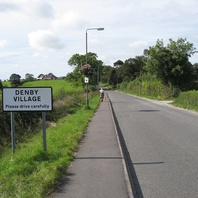
Viking Names
Denby
Denby, in the Morleyston and Litchurch Hundred of Derbyshire, takes its name from the Old English ethnonym Dene ‘a Dane’ and Old Norse by ‘a farmstead, a village’. Traditionally, the place-name has been interpreted as referring to a settlement of Danes. However, the exact implications of such a name are not yet fully understood and are the subject of ongoing work by Dr Jayne Carroll of the Institute for Name-Studies, University of Nottingham.
